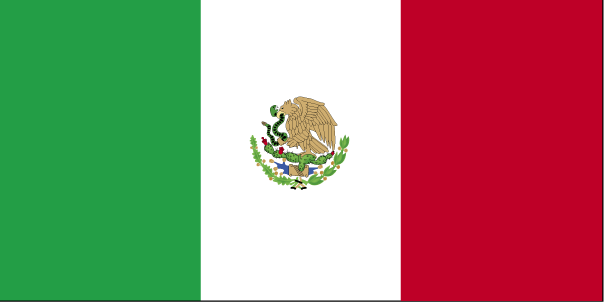Resolution #218
 |
The question of rising fuel prices |
| Committee: ECOFIN | |
| Main Submitter: USA | |
| Submitted: 02/04/2022 10:51 |
| Status |
|---|
| Passed cosubmitter sheet validation |
| Approved by approval panel |
| Selected for debate by secretariat |
| Passed by committee (ECOFIN) |
| Chosen for debate in General Assembly |
| Passed by General Assembly |
Committee Voting
| For: | 30 |
| Against: | 2 |
| Abstentions: | 0 |
General Assembly Voting
| For: | 23 |
| Against: | 10 |
| Abstentions: | 5 |
Options
Co-submitters
 | United Arab Emirates |
 | UK |
 | Czech Republic |
 | Mexico |
 | Ghana |
 | Poland |
 | Lebanon |
 | Malta |
Resolution
FORUM: The Economic and Financial Council
THE QUESTION OF: RISING FUEL PRICES
Submitted by: The United States of America
Co-Submitters: The United Arab Emirates, The United Kingdom, Mexico, Czech Republic, Ghana, Poland, Malta, Lebanon.
THE ECONOMIC AND FINANCIAL COUNCIL,
Defining fuel as material such as coal, gas, or oil that is burned to produce heat or power,
Noting that about 80% of the global energy usage currently comes from fossil fuels,
Noting further that crude oil prices have risen almost 11% since the Russian invasion of Ukraine,
Further noting that global crude oil shortages stem from the warranted refusal of Russian oil by the vast majority of member nations,
Taking into account the legally binding climate commitments of the Paris Agreement made by 196 member nations in 2015,
Recognising the huge importance of Sustainable Development Goals (SDGs) numbers 7 (clean energy and fuel), 9 (industry, innovation and infrastructure), 11(sustainable cities and communities), and 13 (climate action) and their relevance pertaining to the issue at hand,
Concerned by the lack of progress being made by member nations to meet the targets set out in the Paris Agreement,
Alarmed by the dangerous dependency on fossil fuels, in particular fossil fuels originating from the Russian Federation, worldwide,
1. Calls for the creation of a UN sub-body, the United Nation Committee on the Temporary Expansion of Fracking and Drilling (UNCTEFC) in order to,
a. Temporarily fund the expansion of fracking and drilling in member nations in order to increase the production of crude oil,
b. Observe the private and governmental organisations participating in the fracking and/ or drilling to ensure that the extraction processes are as environmentally friendly and ethical as possible,
c. Ensure that these temporary fracking and drilling sites are immediately terminated as soon as global crude oil supplies return to a normal level and price;
d) That the profits of said fracking goes into the development of the nation where the fracking is occurring for LEDC and in the case of MEDC it is invested into the development of Renewable Technology
2. Supports the temporary lifting of sanctions imposed by the international community on oil producing nations such as Venezuela and Saudi Arabia in order to,
a. Increase the availability of crude oil globally, until crude oil supplies return to normal levels (levels previous to the current spike in fuel prices) and/or other methods of energy production become more prevalent,
b. Temporarily drive down the price of crude oil by increasing the amount of crude oil being sold;
3. Further Calls for the creation of a UN sub-body, the United Nations Committee on the Development of Renewable Energy Technology (UNDRET), which will work in conjunction with the the CSD (Commission on Sustainable Development), in order to,
a. Fund companies that are researching and deploying renewable energy and other green technologies including but not limited to,
i. Technologies such as solar panels, wind turbines, geothermal energy, hydroelectric power and other renewable energy processes
ii. Technologies such as all types of electric vehicles (EV's)
iii. Technologies such as battery technology for transport and for homes
b. Make renewable energy a cheaper and more viable alternative to fossil fuels which will help member nations to honour their Paris Agreement commitments,
c. Help speed up research in to 'green' technology in order to make the path to combating climate change easier and cheaper;
4. Suggests the implementation of a mass media campaign through a wide range of media such as television, pamphlets and social media in all member nations in order to educate the public about how they can take small measures to decrease their fuel consumption, these measures include but are not limited to,
a. Further suggesting an emphasis on taking public transport in member nations where this is possible,
b. Further recommending steps which households can take to decrease their fuel consumption such as buying from local businesses;
5. Advocates for a biennial conference to be held in Geneva, Switzerland, between all member nations to negotiate new means of gas and fuel importation for member nations with high dependency on Russian oil,
a. recommends that these nations use this conference to negotiate new trade deals concerning fuel with other member nations possessing large fuel reserves,
b. further recommends that these member nations with high dependency on Russian fuel simultaneously make use of the measures mentioned above in
order to make themselves more self-sufficient;
6. Endorses the creation of a UN-funded scheme, the renewable energy fund or the REF to provide funding for the implementation of sustainable energy sources in sparsely populated areas with a particular emphasis on LEDC nations through methods such as but not limited to,
a. solar panels in countries with large amounts of sparsely populated land,
b. wind turbine farms in sparsely populated areas.